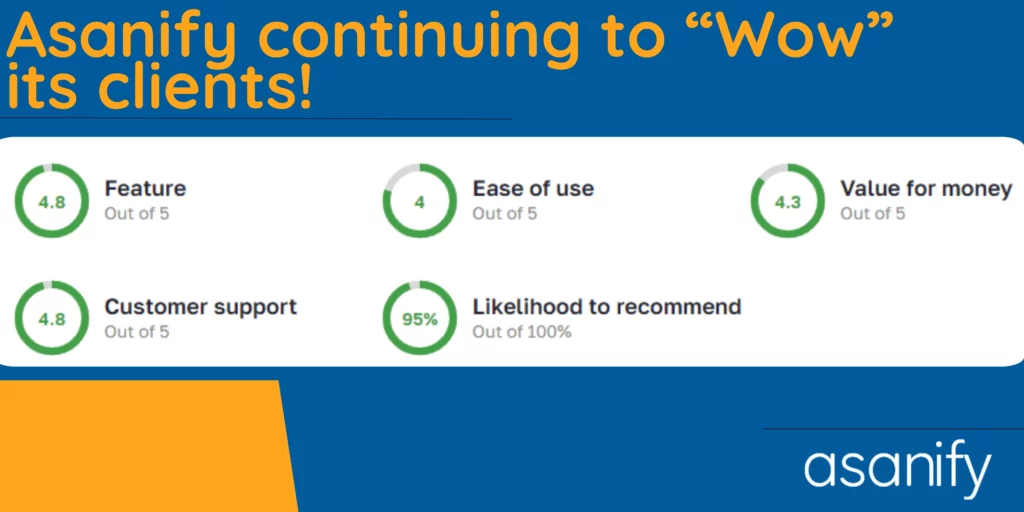Vietnam is a booming market for businesses looking to hire contractors. Whether you’re a startup or an established company, hiring contractors can provide flexibility and cost savings. However, navigating the contractor landscape in Vietnam can be challenging if you’re unfamiliar with the local laws and regulations. In this comprehensive guide, we’ll walk you through the entire process as to how you can hire and pay contractors in Vietnam, ensuring that you stay compliant and minimize risks.
Contents
- Who is an Independent Contractor in Vietnam?
- How is an independent contractor in Vietnam different from an Employee?
- Penalties for Contractor and Employee misclassification in Vietnam
- What are the Labor Laws in Vietnam?
- Steps to Hire a Contractor in Vietnam
- Important Considerations for Hiring and Managing Contractors in Vietnam
- How to draw up an independent contractor agreement in Vietnam
- Do’s and Don’ts of Designing an Independent Contractor Agreement to Hire and Pay Contractors in Vietnam
- How Payroll Works When You Move Ahead to Pay Contractors in Vietnam
- Tax Filing Requirements for Contractors in Vietnam
- Tax Compliance Norms for US-based Companies
- Minimum Wages for Contractors in Vietnam
- Best Ways to Pay Contractors in Vietnam
- Currency and Other Considerations to Pay Contractors in Vietnam
- Tax and Other Payroll Costs for Contractors in Vietnam
- Termination or extension terms for independent contractors in Vietnam
- How to Convert an Independent Contractor in Vietnam to an Employee?
- Quick Wrap Up
- Frequently Asked Questions
Who is an Independent Contractor in Vietnam?
Before we delve into the intricacies of hiring contractors in Vietnam, let’s define who exactly qualifies as an independent contractor in the eyes of the law. In Vietnam, independent contractors are individuals or entities that provide services to companies without forming an employment relationship. They work on a project basis, have their own tools and equipment, and have control over how the work is performed.
Now, let’s explore the concept of independent contractors in Vietnam in more detail. In this Southeast Asian country, independent contractors play a vital role in various industries, including technology, construction, consulting, and creative services. These individuals or entities offer specialized skills and expertise to businesses, allowing them to tap into a flexible workforce without the long-term commitment of hiring full-time employees.
Key Features of Independent Contractors in Vietnam
- One of the key characteristics of independent contractors in Vietnam is their ability to work autonomously. Unlike employees who are subject to the control and direction of their employers, contractors have the freedom to determine how they will complete their assigned tasks. They have the flexibility to set their own working hours, choose their preferred work location, and even decide on the specific tools and equipment they will use.
- Furthermore, independent contractors in Vietnam are typically engaged on a project-by-project basis. This means that they are hired to complete a specific task or achieve a particular outcome within a defined timeframe. Once the project is completed, the contractual relationship between the contractor and the company may come to an end, unless there is a need for further collaboration.
- It’s worth noting that independent contractors in Vietnam are responsible for managing their own taxes and social insurance contributions. Unlike employees who have these obligations deducted from their salaries by their employers, contractors must handle these financial matters independently. This aspect of being an independent contractor requires them to have a good understanding of the local tax regulations and ensure compliance with the law.
- Additionally, independent contractors in Vietnam have the opportunity to work with multiple clients simultaneously. This enables them to diversify their income streams and expand their professional network. By engaging with different companies and projects, contractors can gain valuable experience, develop a versatile skill set, and establish a strong reputation within their respective industries.
Also Read: Pay Contractors in India- The Ultimate Hiring Guide
How is an Independent Contractor in Vietnam different from an Employee?
It’s crucial to understand the distinction between independent contractors and employees in Vietnam, as misclassification can result in hefty penalties.
Penalties for Contractor and Employee misclassification in Vietnam
Misclassifying a worker as a contractor when they should be classified as an employee, or vice versa, can lead to severe consequences. The penalties vary depending on the nature and severity of the violation. It’s essential to classify your workers correctly to avoid potential fines and legal disputes.
In Vietnam, the government takes misclassification seriously and has implemented strict regulations to protect the rights of workers. When a worker is misclassified, it not only affects their employment status but also impacts their entitlement to benefits and protections under the law.
1. Hefty Fines
One of the penalties for misclassification is the imposition of hefty fines. The amount of the fine depends on various factors, such as the number of misclassified workers and the duration of the violation. The fines can range from a few million Vietnamese Dong to tens of millions, significantly impacting a company’s financial health.
2. Legal Conflicts
Worker misclassification can lead to legal disputes and costly litigation. If a misclassified worker decides to take legal action, the company may be required to pay back wages, benefits, and compensation for any damages caused by the misclassification. This can result in substantial financial losses and damage to the company’s reputation.
3. Interruptions in Tax-related Matters
Additionally, misclassification can have tax implications. In Vietnam, employers are responsible for paying social insurance contributions, health insurance premiums, and other mandatory contributions on behalf of their employees. When a worker is misclassified as a contractor, the employer may avoid these obligations, leading to potential tax evasion charges and further penalties.
4. Negative Impact on the Working Relationship
Misclassification can negatively impact the relationship between the company and its workers. When employees feel that they have been misclassified, it can lead to dissatisfaction, low morale, and a decline in productivity. This can have long-term consequences for the company’s overall performance and success.
To avoid misclassification and its associated penalties, it is crucial for employers to understand the criteria for classifying workers correctly. Factors such as the level of control, the nature of the work, and the degree of independence should be carefully considered when determining whether a worker should be classified as an employee or a contractor.
Additionally, seeking legal advice from experts in labor law can help companies navigate the complex regulations and ensure compliance. By correctly classifying workers and fulfilling their obligations, employers can maintain a positive relationship with their workforce, avoid legal disputes, and contribute to a fair and equitable labor market in Vietnam.
Suggested Read: Employee Misclassification Guide- The Key to Avoiding Hefty Penalties
What are the Labor Laws in Vietnam?
Vietnam has specific labor laws governing both employees and contractors. Let’s understand what these are!
For Employees
1. Working Hours
The standard working week is 40 hours. Overtime is subject to additional compensation. For employees working overtime on a rest day or weekend, the compensation rate has to be at least 150%. The overtime compensation rate is 300% for work completed during a holiday.
2. Leave Entitlements
Employees are entitled to annual leave, public holidays, and sick leave. Maternity and paternity leave are also specified.
3. Contracts
Employment contracts are required, detailing terms and conditions such as job scope, salary, working hours, and benefits.
4. Minimum Wage
Vietnam sets minimum wages by region. Employers must comply with these rates, which are revised periodically. The exact minimum wage rates have been mentioned in one of the below sections.
5. Social Insurance
Employers and employees contribute to social insurance, covering sickness, maternity, old age, and unemployment benefits.
6. Termination Procedures
Specific procedures and notice periods are outlined for termination, protecting employees’ rights.
For Contractors
1. Independent Contractor Agreements
Contractors typically operate under service contracts, defining the scope, deliverables, and payment terms.
2. Tax Obligations
Independent contractors in Vietnam are responsible for their own taxes, and businesses engaging contractors must ensure compliance with tax regulations.
3. Work Permits
Foreign contractors may require work permits, and businesses hiring them should ensure legal authorization.
4. Intellectual Property
Clauses regarding intellectual property ownership and confidentiality are common in contractor agreements.
5. Liability and Indemnification
Contracts often specify liability and indemnification provisions, outlining responsibilities and mitigating risks.
6. No Employment Benefits
Unlike employees, contractors are not entitled to employment benefits, such as social insurance or paid leave.
Recommended Read- Hire Employees in India Through EOR
Steps to Hire a Contractor in Vietnam
When it comes to hiring contractors in Vietnam, there are several steps you should follow to ensure a smooth process. Firstly, clearly define the scope of work and expected deliverables.
Step 1: Specifying the Work Scope
Defining the scope of work is crucial as it sets the foundation for the entire project. Take the time to thoroughly analyze and document the specific tasks and objectives that need to be accomplished. This will not only help you communicate your expectations clearly to potential contractors but also serve as a reference point throughout the project.
Step 2: Undertaking the Task of Searching for Suitable Contractors
Next, engage in a thorough contractor search, considering factors such as industry experience, track record, and reputation. Embarking on a quest to search for skilled contractors suitable for your business is essential to find the right fit for your project. Start by researching reputable contractors in Vietnam who specialize in the type of work you require. Look for contractors with a strong track record of successfully completing similar projects and positive reviews from past clients. Additionally, consider their industry experience and whether they have worked on projects of a similar scale or complexity.
Step 3: Assessing the Skills of Shortlisted Contractors
Once you’ve identified potential contractors, conduct interviews to assess their suitability for the project. Interviewing potential contractors allows you to delve deeper into their qualifications, expertise, and approach to work. Prepare a list of questions that cover various aspects of the project, such as their understanding of the scope of work, their proposed timeline, and their communication style. During the interviews, pay attention to their level of professionalism, communication skills, and their ability to address any concerns or questions you may have.
Step 4: Prepare the Much-needed Independent Contractor Agreement
Finally, it is now the time to create a written contract that outlines the terms and conditions of the engagement. A written independent contractor agreement is a crucial document that protects both parties involved in the contractor-client relationship. It should clearly outline the scope of work, project timeline, payment terms, and any other relevant details. Make sure to include provisions for potential changes or modifications to the project, as well as dispute resolution mechanisms. Review the contract thoroughly with the selected contractor to ensure mutual understanding and agreement before signing.
By following these steps, you can navigate the process of hiring a contractor in Vietnam with confidence and increase the likelihood of a successful partnership.
Also Read- Pay Contractors in Japan- A Comprehensive Guide to Hiring
Important Considerations for Hiring and Managing Contractors in Vietnam
When it comes to hiring contractors in Vietnam, there are several important considerations that need to be taken into account. While there are certainly many advantages to hiring contractors in this country, it is crucial to navigate potential risks and challenges effectively. One of the most crucial considerations is ensuring compliance with local laws and regulations.
1. Gaining A Clear Understanding of the Labor Laws in Vietnam
Vietnam has its own set of labor laws that employers must adhere to. Familiarizing yourself with these laws is essential to avoid any legal complications in the future. These laws cover various aspects such as working hours, minimum wage, overtime, and employee benefits. It is important to ensure that your contractors are aware of and adhere to these laws to maintain a harmonious working relationship.
2. Comprehending the Tax Obligations
In addition to labor laws, it is also important to understand the tax obligations associated with hiring contractors in Vietnam. Different tax regulations may apply depending on the nature of the work and the duration of the contract. It is advisable to consult with a local tax expert or accountant to ensure that you are fulfilling your tax obligations and avoiding any potential penalties.
3. Staying Aware of Insurance Requirements
Do note that insurance requirements is yet another crucial consideration. It is essential to have proper insurance coverage for your contractors to protect both parties in case of any unforeseen circumstances. This may include liability insurance, workers’ compensation insurance, or other relevant policies. Understanding the insurance requirements and ensuring that your contractors are adequately covered will provide peace of mind and mitigate potential risks.
4. Paying Importance to Communication
Establishing clear communication channels and maintaining regular contact with your contractors is key to a successful working relationship. Vietnam has a diverse cultural landscape, and effective communication is crucial to avoid any misunderstandings or misinterpretations. Regular check-ins, progress updates, and open lines of communication will help foster trust and collaboration with your contractors.
5. Taking Due Consideration of the Cultural Nuances
It is way too essential to consider the cultural nuances and business etiquette when working with contractors in Vietnam. Understanding and respecting the local customs and traditions will go a long way in building strong relationships and ensuring a positive working environment. Taking the time to learn about Vietnamese culture, greetings, and business practices will help you navigate any potential cultural differences and establish a strong rapport with your contractors.
Hiring and managing contractors in Vietnam can be a rewarding experience, but it is essential to navigate the potential risks and challenges effectively. Ensuring compliance with local laws and regulations, understanding tax obligations, and maintaining clear communication channels are all crucial aspects of successful contractor management. By taking these considerations into account, you can establish a strong and productive working relationship with your contractors in Vietnam.
Suggested Read: Pay Contractors in Mexico- The Complete Hiring Guide You Need!
How to Draw Up an Independent Contractor Agreement in Vietnam
An independent contractor agreement is a vital document that safeguards the interests of both parties involved. When drafting this agreement in Vietnam, it should specify the scope of work, engagement duration, payment terms, intellectual property ownership, confidentiality, and termination conditions. Consulting a legal professional specializing in labor law is advisable to ensure compliance and minimize legal risks.
1. Defining the Scope of Work
When it comes to specifying the scope of work in an independent contractor agreement in Vietnam, it is essential to be as detailed as possible. This helps to avoid any misunderstandings or disputes that may arise during the course of the engagement. The agreement should clearly outline the tasks and responsibilities of the contractor, ensuring that both parties have a clear understanding of what is expected.
2. Information About Tenure
Make sure that the agreement includes a section on engagement duration. This specifies the length of time the contractor will be engaged for and helps to establish a timeline for the completion of the project or services. It is important to consider factors such as project milestones or specific deadlines when determining the engagement duration.
3. Clarity About Payment Terms
Payment terms are another crucial aspect to include in the independent contractor agreement. This section should outline how and when the contractor will be paid, whether it is a fixed fee, hourly rate, or based on specific deliverables. It is important to be clear about the payment schedule and any additional expenses that may be reimbursed.
4. Mention of Intellectual Property Ownership
Intellectual property ownership is a significant consideration in any independent contractor agreement. In Vietnam, it is important to clearly define who will own the intellectual property rights to any work created during the engagement. This includes any copyrights, trademarks, or patents that may arise from the contractor’s work.
5. Confidentiality
Confidentiality is another important aspect to address in the agreement. Both parties should agree to keep any confidential information shared during the engagement confidential and not disclose it to third parties. This helps to protect sensitive information and trade secrets.
6. Mention of Termination Terms
Lastly, the agreement should include termination conditions. This outlines the circumstances under which either party can terminate the agreement. It is important to include provisions for termination with cause, such as breach of contract, as well as termination without cause, with appropriate notice periods.
Do note that drawing up an independent contractor agreement in Vietnam requires careful consideration of various factors. Specifying the scope of work, engagement duration, payment terms, intellectual property ownership, confidentiality, and termination conditions are all crucial elements to include. Consulting a legal professional specializing in labor law is highly recommended to ensure compliance and minimize legal risks.
Also Read: Independent Contractor Agreement for USA
Do’s and Don’ts of Designing an Independent Contractor Agreement to Hire and Pay Contractors in Vietnam
Do’s
1. Clearly Define Scope of Work
Clearly outline the tasks and responsibilities the independent contractor is expected to perform. Be specific to avoid misunderstandings.
2. Payment Terms
Make sure to state the payment terms, including the amount, frequency, and method of payment. Further, it is important to specify any additional expenses or reimbursements.
3. Duration and Termination
Defining the duration of the contract and the conditions under which either party can terminate the agreement is very essential. Mention notice periods too, if any.
4. Intellectual Property Rights
Specifying who owns the intellectual property created during the contract is vital. This is crucial to avoid disputes over ownership.
5. Confidentiality Clause
Include a confidentiality clause to protect sensitive information and trade secrets. Don’t forget to outline what information is considered confidential.
6. Indemnification
Define the responsibilities of each party in case of legal claims or liabilities. Include an indemnification clause to protect both parties.
7. Insurance Requirements
Specify any insurance coverage requirements, such as liability insurance, that the contractor must maintain during the contract period.
8. Dispute Resolution
Include a clause specifying the method for resolving disputes, whether through mediation, arbitration, or litigation.
Don’ts
1. Unclear Language
Avoid using ambiguous language. Be precise and specific in your contract terms to minimize the risk of misunderstandings.
2. Ignoring Local Laws
Ensure that your contract complies with local labor laws and regulations in Vietnam. Seek legal advice to navigate the specific requirements.
3. Excessive Control
Be cautious not to exert too much control over the contractor’s work, as this may blur the line between an independent contractor and an employee, potentially leading to legal issues.
4. Missing Confidentiality Clause
Omitting a confidentiality clause can expose your business to the risk of sensitive information being disclosed.
5. Neglecting Tax Implications
Understand and address tax implications for both parties. Failure to do so may lead to tax-related complications.
6. No Non-Compete Clause
If necessary, include a reasonable non-compete clause to prevent the contractor from engaging in similar work for competitors during and after the contract period.
7. Ignoring Currency and Payment Issues
Define the currency for payments and consider addressing any potential currency exchange rate fluctuations.
8. Overlooking Force Majeure
Include a force majeure clause to address unforeseen events that may affect the ability of either party to fulfill their obligations.
How Payroll Works When You Move Ahead to Pay Contractors in Vietnam
Effectively managing payroll for contractors in Vietnam requires an understanding of local regulations. Contractors typically invoice the company for their services, including taxes and social insurance contributions. It’s crucial to keep accurate records of each payment and maintain transparency with your contractors to avoid any issues related to payroll.
Suggested Read: Invoice for Contractors- The Guide to Making an Ideal One!
Tax Filing Requirements for Contractors in Vietnam
Contractors in Vietnam are responsible for their own tax obligations. The standard Corporate Income Tax (CIT) rate of 20% is applicable for independent contractors in Vietnam. This very CIT is to be paid on a quarterly basis.
Final annual taxes are to be duly filed and paid by the end of the third month after the financial year, that is, 31st March. If functioning as a business, the VAT rate varying from 0 to 10% will be applicable to contractors. The exact VAT rate depends on the nature of the business activities. VAT needs to be filed every month and duly paid within a period of 20 days after the month ends. In Vietnam, independent contractors need to pay social security contributions, also known as “self-employment tax.”
Forms to be Submitted by Contractors
- Contractors in Vietnam need to file their income taxes (and, this includes VAT as well) by submitting a Section C form.
- Social security taxes ought to be filed by submitting a Section SE form.
Both income taxes and social security taxes can be paid via the Electronic Federal Tax Payment System or EFTPS.
Tax Compliance Norms for US-based Companies
Minimum Wages for Contractors in Vietnam
In Vietnam, there are two kinds of minimum wage rates for employees.
|
Type |
Amount |
Applicable For |
| First Kind of Minimum Wage Rate | VND 1,800,000 | Employees in organisations and enterprises owned by state |
| Second Kind of Minimum Wage Rate | Regional Minimum Wage (varies across diverse regions) | Employees in all non-state enterprises, on the basis of zones as specified by the government |
The regional minimum wage rate ranges from about 3 million VND to about 4.5 million VND per month. Let’s have a look at the minimum wage rates applicable to the four regions respectively.
|
Region |
Monthly Minimum Wage |
|
I |
VND 4,680,000 |
|
II |
VND 4,160,000 |
|
III |
VND 3,640,000 |
| IV |
VND 3,250,000 |
While there is no universal minimum wage for contractors in Vietnam, it’s important to ensure that the compensation you offer is fair and meets industry standards. Take into account factors such as the complexity of the work, the contractor’s expertise, and local market rates to determine suitable remuneration.
Best Ways to Pay Contractors in Vietnam
Currency and Other Considerations to Pay Contractors in Vietnam
In Vietnam, the official currency is the Vietnamese đồng (VND). When paying contractors, it’s important to be aware of the current exchange rates and any potential fluctuations. Ensure that both parties agree on the currency to be used for transactions to avoid misunderstandings.Consideration should also be given to local tax regulations. Vietnam has specific tax laws, and it’s essential to comply with them to avoid legal issues.
Seek advice from local tax authorities or consult with a tax professional to understand the tax implications for both the payer and the contractor.Additionally, payment methods can vary. While bank transfers are commonly used, some contractors may prefer alternative methods. Discuss and agree upon the most convenient and secure payment method for both parties.
Lastly, establish clear payment terms and a schedule. It’s advisable to have a detailed contract outlining the scope of work, payment milestones, and any penalties or incentives for meeting deadlines. This helps create transparency and a smoother working relationship with contractors in Vietnam.
Tax and Other Payroll Costs for Contractors in Vietnam
Aside from taxes, there may be additional payroll costs associated with hiring contractors in Vietnam. These costs can include social insurance contributions and health insurance. Familiarize yourself with the specific requirements and associated expenses to ensure compliance and accurate budgeting.
Termination or Extension Terms for Independent Contractors in Vietnam
When engaging contractors in Vietnam, it’s essential to define termination and extension terms in the initial agreement. Clearly outline under what circumstances you can terminate or extend the contract, the notice period required, and any associated penalties or benefits. This will protect both parties and provide clarity in case of unforeseen circumstances.
Suggested Read- Terminating a Contractor- Know How to End an Agreement Politely!
How to Convert an Independent Contractor in Vietnam to an Employee?
Converting an independent contractor to an employee in Vietnam involves several steps. Let’s see what these are:
1. Legal Compliance
- Ensure compliance with Vietnamese labor laws and regulations.
- Understand the specific requirements for employment contracts and labor agreements.
2. Mutual Agreement
- Discuss the proposed changes with the contractor and obtain mutual consent.
- Clearly communicate the reasons for the conversion.
3. New Employment Contract
- Draft a new employment contract outlining the terms and conditions of employment.
- Include details such as salary, working hours, benefits, and other relevant provisions.
4. Social Insurance and Health Insurance
- Enroll the employee in Vietnam’s social insurance and health insurance systems.
- Ensure contributions are made in accordance with local regulations.
5. Work Permit (if applicable)
- If the employee is a foreign national, ensure they have a valid work permit.
- Update or obtain the necessary permits as required by Vietnamese law.
6. Tax Implications
- Review tax implications for both the employer and the employee.
- Comply with tax obligations, including withholding taxes and reporting.
7. Notify Relevant Authorities
- Inform the local labor authorities about the change in employment status.
- Comply with any notification or documentation requirements.
8. Bank Account and Payroll
- Assist the employee in opening a local bank account if needed.
- Adjust the payroll system to reflect the new employment status. To make things seamless, Asanify is here to help you set things up and run payroll for your employees in a jiffy.
9. Employee Orientation
- Provide the employee with information about company policies, procedures, and expectations.
- Facilitate an orientation process to help the employee integrate into the new role.
10. Termination of Contractor Agreement
- If applicable, formally terminate the independent contractor agreement.
- Settle any outstanding payments or obligations with the contractor.
11. Record-keeping
- Maintain accurate records of the conversion process.
- Document all relevant details, including communications, contracts, and compliance efforts.
12. Seek Legal Advice
Consider consulting with legal professionals experienced in Vietnamese labor law to ensure full compliance and avoid potential issues.
Remember that the specific requirements and procedures may vary, so it’s advisable to seek guidance from local legal experts to navigate the complexities of labor regulations in Vietnam.
Also Read: Pay Contractors in Indonesia- The Ultimate Guide to Hiring
Quick Wrap Up- Pay Contractors in Vietnam
By following the steps outlined in this comprehensive guide, you can confidently navigate the process of hiring and paying contractors in Vietnam. Remember to prioritize compliance with local laws and regulations, establish clear communication channels, and create robust independent contractor agreements.
Frequently Asked Questions- Pay Contractors in Vietnam
Q: Can contractors in Vietnam work exclusively for one company?
A: Yes, contractors can work exclusively for one company if their work arrangement meets the legal requirements of an independent contractor relationship.
Q: How can I find reliable contractors in Vietnam?
A: You can search for contractors through online platforms, local business directories, or ask for recommendations from other businesses. Ensure to check their qualifications, experience, and reviews.
Q: What legal considerations should I be aware of when hiring contractors in Vietnam?
A: Ensure that contractors have the necessary licenses and comply with Vietnamese labor laws. Draft clear and detailed contracts outlining the scope of work, payment terms, and any other relevant details to protect both parties.
Q. What types of contracts are common in Vietnam for hiring contractors?
A: Fixed-price contracts and time and materials contracts are common. Choose the one that aligns with your project requirements and negotiate terms such as payment schedules and project milestones.
Q: How do I calculate and negotiate contractor rates in Vietnam?
A: Consider factors such as the contractor’s expertise, project complexity, and market rates. Negotiate rates based on a clear understanding of the project scope, timeline, and potential additional costs.
Q: Are there any cultural considerations when working with contractors in Vietnam?
A: Yes, building strong relationships is important. Respect the hierarchical structure, communicate clearly, and be mindful of cultural nuances. Establishing trust and understanding will contribute to a successful collaboration.
Q: What are the common payment methods for contractors in Vietnam?
A: Bank transfers are widely used for payments. Clearly define payment terms in the contract, such as initial deposits, milestone payments, and final payments upon completion.
Q: Are there any taxes or withholding requirements when paying contractors in Vietnam?
A: Yes, you may be required to withhold taxes on payments to contractors. Familiarize yourself with Vietnamese tax laws and ensure compliance to avoid any legal issues.
Q: How can I ensure quality work from contractors in Vietnam?
A: Clearly define project expectations, provide detailed specifications, and maintain open communication. Regularly review progress and address any concerns promptly to ensure the project meets your standards.
Q: What recourse do I have in case of disputes with contractors in Vietnam?
A: Include dispute resolution mechanisms in your contract, such as arbitration or mediation. Seek legal advice if needed and try to resolve issues amicably before escalating.
Q: Can foreign companies hire local contractors in Vietnam?
A: Yes, foreign companies can hire local contractors. Ensure compliance with local regulations, obtain necessary work permits, and follow legal procedures for hiring foreign workers.
Now that you’re equipped with the knowledge and insights to hire and pay contractors in Vietnam, you can leverage this flexible workforce to drive your business forward. Start exploring the contractor landscape in Vietnam and unlock the potential for growth and success.
Not to be considered as tax, legal, financial or HR advice. Regulations change over time so please consult a lawyer, accountant or Labour Law expert for specific guidance.
















